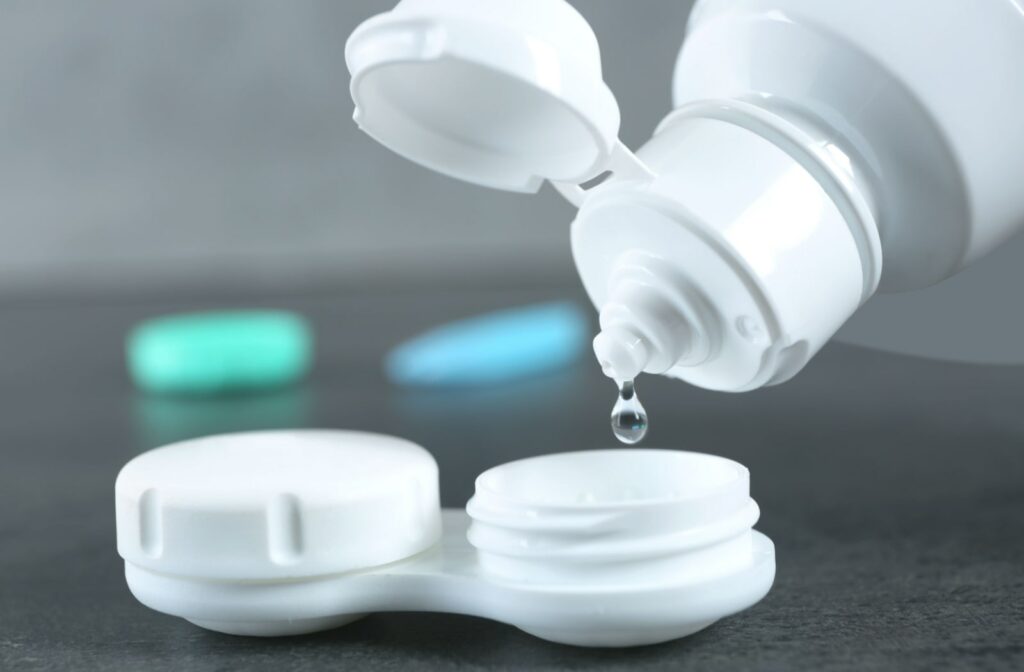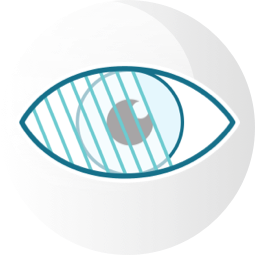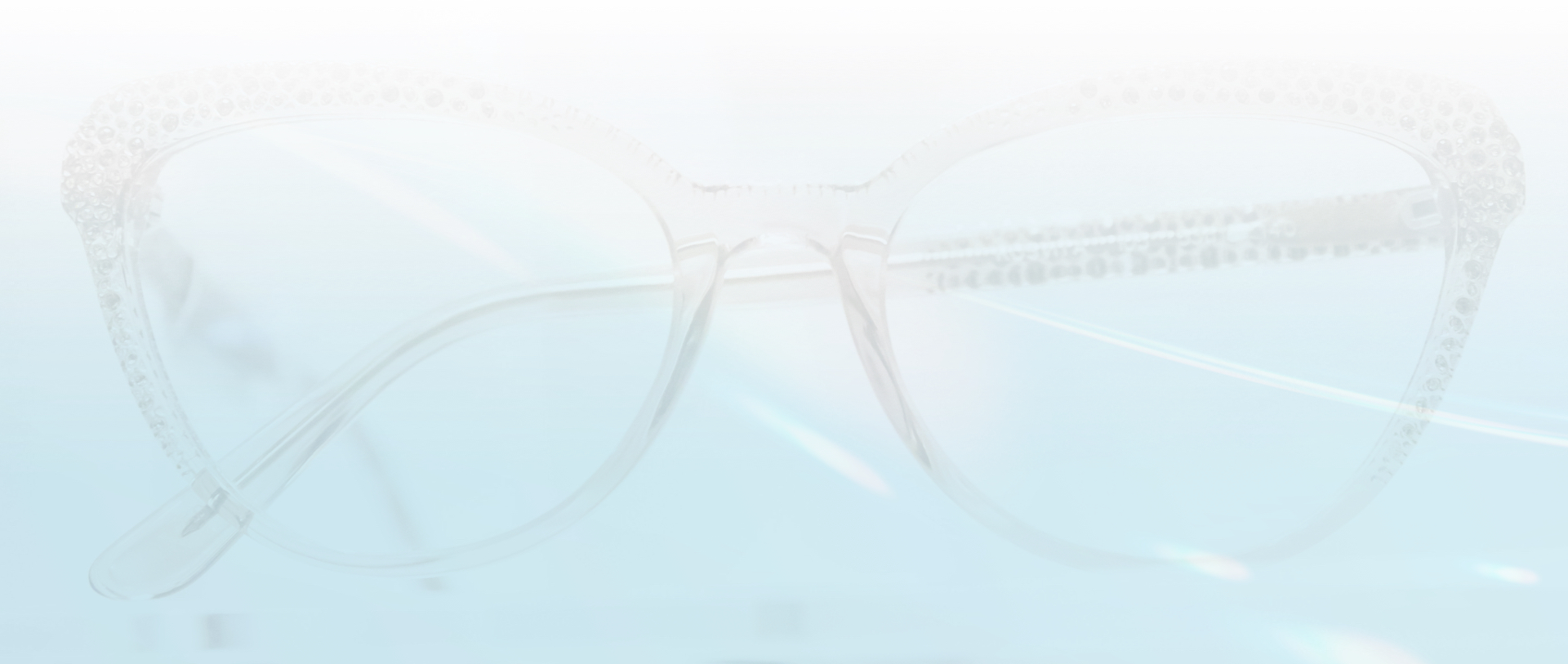For 45 million Americans, contact lenses are the vision correction method of choice. There are many reasons for this. Some people appreciate the wider range of clear vision, while others like the ability to see better without affecting their appearance. Contact lenses are custom-fitted and come in different types designed for various vision needs.
Whatever the reason, caring for your contact lenses is the first thing new wearers need to learn—because lenses don’t last forever. Contact lenses can expire, wearing out over time depending on the type of lens and how they’re stored.
Types of Contact Lenses
Every contact lens is designed to be worn only for a designated period of time. This period depends on the type of contact lens: soft or rigid gas permeable (RGP).
Soft Contact Lenses
Soft contact lenses are typically described as disposable lenses. Being made of soft, flexible plastics, such as silicone-hydrogel, soft contact lenses are typically more comfortable than their rigid cousins.
Many soft lenses are designed for daily replacement, meaning you dispose of your lens every night and wear a new one in the morning. On the other hand, you could wear extended-wear soft lenses for a week or a month before needing to replace them.
The hydrogel material that makes soft lenses is excellent at letting oxygen reach your eye, but it also retains moisture to keep the lens soft. While this is great for comfort, it means they can also act like a sponge and absorb proteins and lipids from our tears.
When these substances build up, they can make your lenses less effective and your eyes more prone to infection.
Rigid Gas Permeable (RGP) Lenses
RGP lenses are reusable, making them more durable and resistant to deposit buildup. They also tend to give sharper, clearer vision than soft lenses do.
While RGP lenses can be uncomfortable initially, they are fitted to your eye and should get more comfortable as you get used to them. You’ll also need to keep reusable lenses clean and disinfected. If not properly cared for, contact lenses can collect bacteria, protein buildup, and other contaminants that can lead to eye infections.
Other Types of Contact Lenses
While lenses fall into the general categories of soft or RGP, they aren’t the only types of lenses that exist. There are also specialty lenses, such as hybrid lenses with soft and rigid components, scleral lenses for people with keratoconus, and MiSight lenses for controlling myopia in children.
If you’re ever unsure how long you can wear your contact lenses, ask your optometrist.
Why Do Contact Lenses Expire?
Like all medical tools, contact lenses are effective as long as they stay sterile. While it might seem obvious to some that you don’t want to wear a disposable lens a second time, contact lenses also have expiration dates like milk does.
They won’t curdle but glance at the side of a contact lens box, and you’ll see the date the lenses are best before.
How Do Soft Contact Lenses Expire?
Whenever you open a new pack of soft contact lenses, you’ll likely notice the lenses are stored in a saline solution. Soft lenses are sterilized and placed into this saline solution within airtight blister packs to protect them from bacteria. The saline solution has the expiration date, not the lenses.
Over time the saline can become more or less acidic, losing its ability to protect your lenses or even actively damaging them. The seal on the blister pack can also fail, allowing bacteria and other contaminants to reach the solution and turning it into a breeding ground.
Typically a pack of contact lenses can last up to 4 years from their manufacturing date if they remain sealed.
How Do RGP Contact Lenses Expire?
Since manufacturers intend for you to reuse RGP lenses, they design them to resist protein and lipid build-up. As a result, they don’t typically have expiration dates but can break down over time. Of course, you’ll need to care for them properly to prevent bacteria growth, but a well-maintained pair of reusable contact lenses can last for years.
Don’t Forget Your Prescription
Even if your lenses haven’t expired, your prescription can. A prescription is typically only valid for about 1–2 years. After that, your vision may have changed to the point you’ll need to visit your optometrist for a renewal.
What Happens If I Wear Expired Contact Lenses?
Whether your contact lenses are expired or they haven’t been cared for properly, wearing expired contact lenses opens your eyes up to a higher risk of infection. Always follow the wear schedule for your contact lenses.
Eye infections can result in symptoms such as:
- Blurry vision
- Eye pain
- Redness
- Sensitivity to light
- Excess tearing
- Mucus discharge
- The feeling of something in your eye
If you experience any of these symptoms, see your eye doctor as soon as possible.
Caring for Your Contact Lenses
A well-cared-for contact lens can help your vision stay clear and healthy. Here are some tips for caring for your contact lenses:
- Wash your hands thoroughly before handling your lenses
- Use the disinfecting solution as prescribed by your eye care professional
- Store your contact lenses in the proper storage case, replacing the case at least every three months
- Follow the recommended wear schedule for your contact lenses
Making the Change to Contact Lenses
The team at McCauley Celin Eyecare Associates has helped many patients find clear vision with contacts. If you’re ready to find the perfect contacts for you, book an appointment for a contact lens fitting today!














